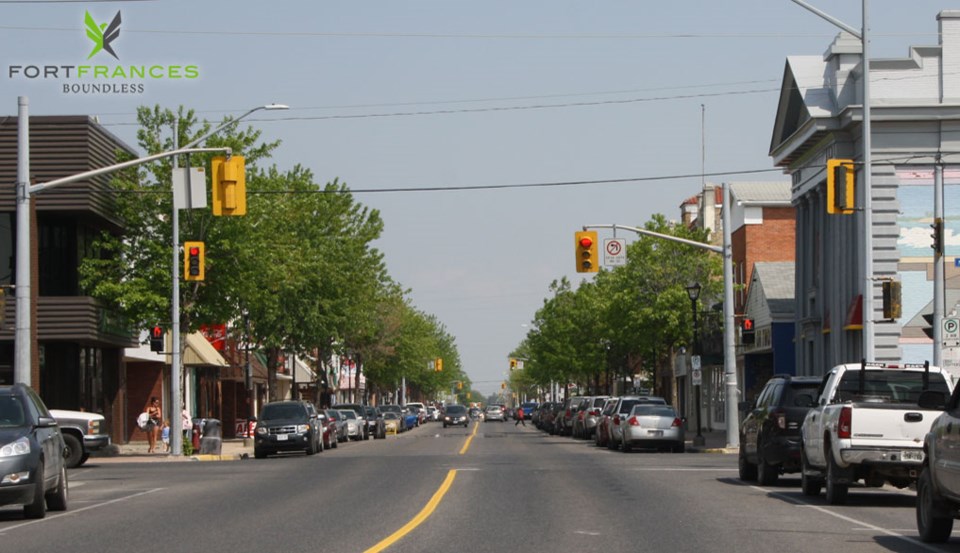FORT FRANCES – The Ministry of the Solicitor General has approved two new police services boards for the Fort Frances and Atikokan areas, according to local officials.
Currently, Fort Frances and Atikokan have one police services board in place to oversee police services in the region. But as of 2024, new changes to the Police Services Act, also known as Community Safety and Policing Act, will require one board per detachment.
Fort Frances Coun. John McTaggart said the communities had lobbied for separate boards to reflect the region's size and unique circumstances.
"In 2021, there were round-table discussions across the province on the impact of [having] one board in the north," he said. "There are some geographical concerns about doing that. And when it came to the Rainy River district, they were very adamant that they wanted their own police service board as they currently have.
"Atikokan is 150 kilometres away from Fort Frances, and I supported their wishes and we determined that we could probably strike a new board for Fort Frances and the west part of the Rainy River District down the Rainy River."
That compares to a different policing context in other parts of the province, McTaggart said.
"In Southern Ontario, there are some municipalities that are one after the other and there could be six or seven. If there are six or seven boards, that means the detachment commander needs to manage all of those different boards and attend those meetings and reports. So, they're trying to streamline it and make it more efficient.”
However, in Northwestern Ontario, each community has their set of unique challenges.
With 150 kilometres separating Atikokan and Fort Frances, the policing in each community looks vastly different. Atikokan is isolated from other urban communities in the area. Fort Frances, on the other hand, has more municipalities directly adjacent to the town.
“Something can be going on in Emo that can have an impact on Fort Frances or vice versa," said McTaggart. "It's not like something in Fort Frances stays in Fort Frances or something that's going on in Barwick stays in Barwick. It could have impacts on other municipalities neighbouring them.”
“I think that we're all focusing on the same things right now. All of the smaller communities in the northern rural communities, we all share similar problems, and I think everybody is aware of them and is working on them,” said Mayor Andrew Hallikas.
With the approval of the Solicitor General, Atikokan will stand on its own and continue with its existing five-member board which includes two council appointees, two community representatives, and one provincial appointee.
The Fort Frances police services board will be expanding their committee to ensure the surrounding townships have a voice.
“When we put the proposal together, we looked at calls for service by community and Fort Frances had far and away more calls for service than the rest of the district communities put together," said McTaggart. "So, the recommendation that I put forward to the municipalities would be two council representatives from Fort Francis and a community member."
The Rainy River District Police Service Board will also have one elected official and a community representative for the townships of Alberton, LaVallee and Emo, and one elected official and a community representative to represent the town of Rainy River and the townships of Morley, Chapple, Dawson, and Lake of the Woods.
However, each municipality will need to iron out the logistics. With nearly 100 kilometres between Fort Frances and Rainy River, each municipality will need to decide on where they are going to meet, the appointment of a board secretary, training, and operating budget.
When asked how the new board will affect policing in the area, Hallikas said, “I don’t think we really know.”
Currently, the Fort Frances Police Services Board members utilize the municipal office for their meetings including the town’s secretary. But with a new board, they might need to hire someone new.
Hallikas said, “We're always concerned with the cost of policing because the cost of policing traditionally in the north and small communities has been fairly high.”
“You always hope that with a bigger area and greater numbers that there are efficiencies to be found. So, I'm going to remain cautiously optimistic that it won't be costing us anymore and slightly hopeful that maybe it'll cost us less,” Hallikas continued.
McTaggart does not see significant changes to the police cost with the implementation of the new board, but he does acknowledge that there will be a learning curve for the members who have not served on a police board before.
Each board member is obligated to take partake in training sessions before taking a seat on the board. This training is built from a curriculum set by the Ontario Association of Police Services Boards and the Solicitor General.
Hallikas credited McTaggart for his work to secure approval for separate boards from the Solicitor General.
